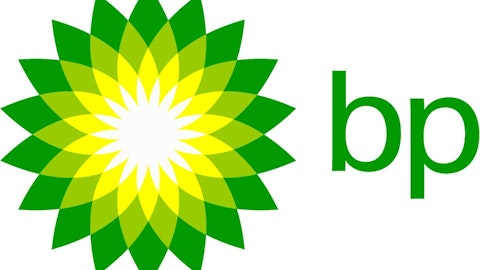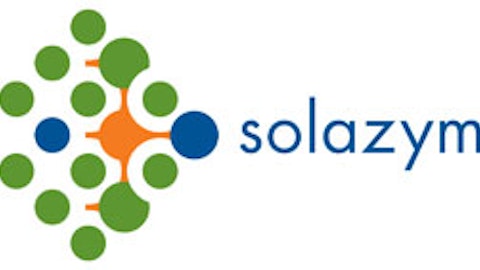Dividend stocks are everywhere, but many just down right stink. In some cases, the business model is in serious jeopardy, or the dividend itself isn’t sustainable. In others, the dividend is so low, it’s not even worth the paper your dividend check is printed on. A solid dividend strikes the right balance of growth, value, and sustainability.
Today, and one day each week for the rest of the year, we’re going to look at one dividend-paying company that you can put in your portfolio for the long term without too much concern. This isn’t to say that these stocks don’t share the same macro risks that other companies have, but they are a step above your common grade of dividend stock. Check out last week’s selection.

Feeling a bit gassy
That’s right, I’m featuring a company with large natural gas deposits and a current 1.5% yield as a great dividend play you can buy right now. Go on, get all the head-scratching and jokes out of the way now, because you might be climbing over each other to dig deeper into Devon by the time I’m done.
As you are probably well aware, the biggest challenge to Devon Energy Corp (NYSE:DVN) and much of the natural gas-heavy E&P drillers has been the volatile prices of the commodities they produce. Very large onshore shale finds over the past decade have dramatically increased natural gas surpluses and — for lack of a better word — tanked nat-gas spot prices. The end result is that companies that were heavily reliant on natural gas for their production have had to shift gears and focus on liquid fuels in order to prosper.
For some natural gas companies, this wasn’t an easy transition. Chesapeake Energy Corporation (NYSE:CHK), for instance, didn’t even have enough cash on hand to cover its capital expenditures and operating expenses for 2013, which necessitated the sale of $6.9 billion worth of Permian Basin assets to Chevron Corporation (NYSE:CVX) and Royal Dutch Shell plc (ADR) (NYSE:RDS.A). For Chesapeake, which really didn’t have much choice, it gives the company breathing room, while a behemoth like Chevron was able to pick up natural gas-heavy assets for an incredibly competitive price.
EnCana Corporation (NYSE:ECA), the Canadian equivalent to Chesapeake, has had it a bit easier, although it essentially took the same route as Chesapeake Energy Corporation (NYSE:CHK) in terms of a vastly reduced dry gas capital expenditure budget and asset sales in order to boost its cash on hand. EnCana sold a 40% stake in undeveloped assets in British Columbia to Mitsubishi UFJ Financial Group Inc (ADR) (NYSE:MTU) early last year, netting $2.9 billion.
For Devon Energy, the process has been considerably easier for a number of reasons.
The Devon advantage
First and foremost, Devon is a mastermind when it comes to striking beneficial joint ventures. No E&P company likes giving up working interests in lucrative fields, but when it comes down to it, Devon Energy Corp (NYSE:DVN) can use the upfront cash payments to pay down a good chunk of its operating and drilling expenses. This is what it did recently when it received $1.4 billion from Sumitomo, which, in exchange for the payment, received a 30% working interest in Devon’s Cline Shale and Midland-Wolfcamp Shale acreage.
Second, Devon has made a nearly seamless transition toward higher liquids production. Although this doesn’t set Devon apart from the trend that we’ve seen throughout the sector, unlike some E&P companies, Devon does have the oil reserves to support increased production. In 2012, Devon Energy Corp (NYSE:DVN) boosted its oil production by 13%, relying on greater efficiency, the addition of wells in the Permian Basin — which boosted oil production by a whopping 31% — and cash from its joint ventures to drive production growth. Devon also boosted its oil reserves by 13% and projects a 12-year lifespan based on existing proven reserves.

